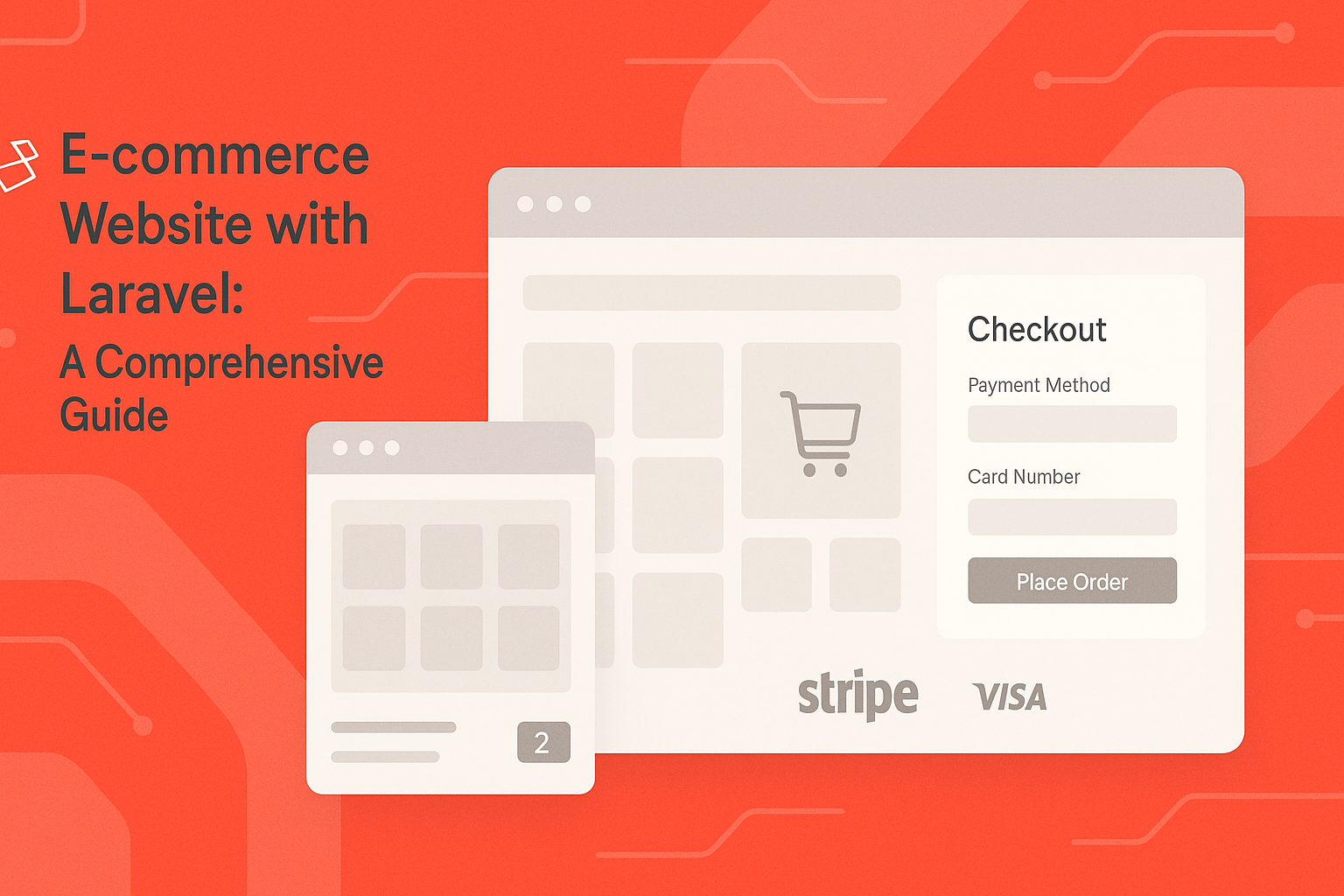Laravel for E-commerce: From Packages to Headless Architecture

For most companies, a website is no longer just an online office or a digital showcase—it is part of the core business process, especially for online stores, marketplaces, and service-based platforms. Ready-made solutions like Shopify, WooCommerce, or Magento are excellent for quick launches, but they often reach their limits once a business needs custom order processing, multi-warehouse inventory management, or unique pricing rules tailored to specific requirements.
This is where Laravel shines. As a robust PHP framework, it combines structure with freedom: you can keep the codebase clean, extend functionality with community packages, or build fully custom features from scratch. In this article, we explore how Laravel supports flexible e-commerce solutions, with practical notes on architecture, recommended packages, and deployment practices.
Why Choose Laravel for E-commerce?
Laravel provides the flexibility to build custom features while leveraging an ecosystem of thousands of community packages. This balance makes it a strong foundation for e-commerce platforms, offering more freedom and scalability than most popular CMS solutions.
- Open-Source Advantage—Full control over the codebase enables deep customization and continuous innovation.
- Scalability—Adapts to growing business needs, from higher traffic to larger product catalogs and complex workflows.
- Security—Built-in protection against CSRF, SQL injection, and XSS helps safeguard sensitive customer data.
- MVC Architecture—A clean, organized structure that speeds up development, simplifies maintenance, and improves collaboration.
- Extensive Ecosystem—Thousands of community packages accelerate delivery, lower costs, and prevent reinventing the wheel.
- Flexible Storefronts (Headless Approach)—Decouples the frontend from the backend so one system can power multiple storefronts—from websites to mobile apps—with greater flexibility, security, and performance.
- API-First Approach—Makes it straightforward to build APIs for seamless integration with storefronts, mobile apps, and third-party services.
Headless E-commerce with Laravel
A headless e-commerce architecture separates the customer-facing frontend from the backend business logic and data handling, providing significant benefits:
- Flexibility—Choose modern frontend technologies like Vue.js, React, or Angular to craft tailored user experiences.
- Performance—Faster page loads and improved responsiveness lead to higher customer satisfaction.
- Omnichannel Presence—Deliver consistent shopping experiences across web, mobile apps, and even IoT devices.
- Enhanced Security—Isolating backend logic from the presentation layer reduces the overall attack surface.
Laravel-based packages such as LunarPHP facilitate headless commerce with a robust RESTful JSON:API and an intuitive Livewire-powered admin panel.
Popular Laravel E-commerce Packages
Selecting the right Laravel package can significantly speed up development and ensure essential capabilities are covered. Here’s a quick overview:
- Bagisto—Open-source platform supporting marketplaces, multi-store setups, PWAs, and B2B commerce.
- Lunar—Ideal for headless solutions with clean architecture, JSON:API, and robust management capabilities.
- Aimeos—High-performance, API-first solution suitable for large-scale e-commerce, marketplaces, and B2B scenarios.
- Vanilo—A streamlined framework emphasizing Laravel’s simplicity for quick, efficient projects.
- AvoRed—Modular, customizable shopping cart for tailored functionality.
- Laravel Shopping Cart—Straightforward package for basic cart implementations.
- Cashier—Integrates subscription billing with Stripe or Paddle.
- Laravel PayPal—Provides seamless PayPal payment integration.
Laravel vs. Ready-made CMS: Comparison
| Feature | Laravel E-commerce Packages | Ready-made CMS (Shopify, WooCommerce, Magento) |
|---|---|---|
| Customization | High; complete code control | Limited by themes/plugins |
| Scalability | Highly scalable | Varies based on CMS |
| Security | Requires careful implementation | Managed by CMS; frequent updates |
| Development Time | Longer; coding expertise required | Shorter; quick setup and out-of-the-box functionality |
| Cost | Potentially lower in the long term | Subscription/transaction fees accumulate |
| Technical Skill | Requires skilled Laravel developers | Manageable with less technical knowledge |
Final Thoughts
Laravel offers a flexible, future-proof foundation for e-commerce. By combining clean architecture, a rich package ecosystem, and support for modern patterns like headless commerce, it enables secure, scalable, and fully tailored solutions. Whether you are starting with a simple store or building a complex multi-channel platform, Laravel provides the tools and ecosystem to bring that vision to life—without being boxed in by the limits of ready-made platforms.
“Ready-made platforms limit growth. Laravel opens the door to tailor-made e-commerce that scales with your business.”
🚀 Build Your Next E-commerce with Laravel
Thinking about building or scaling your e-commerce platform? At DigiSpace, we help businesses design tailored Laravel solutions—from architecture and package selection to deployment and optimization.
Contact Us Today
